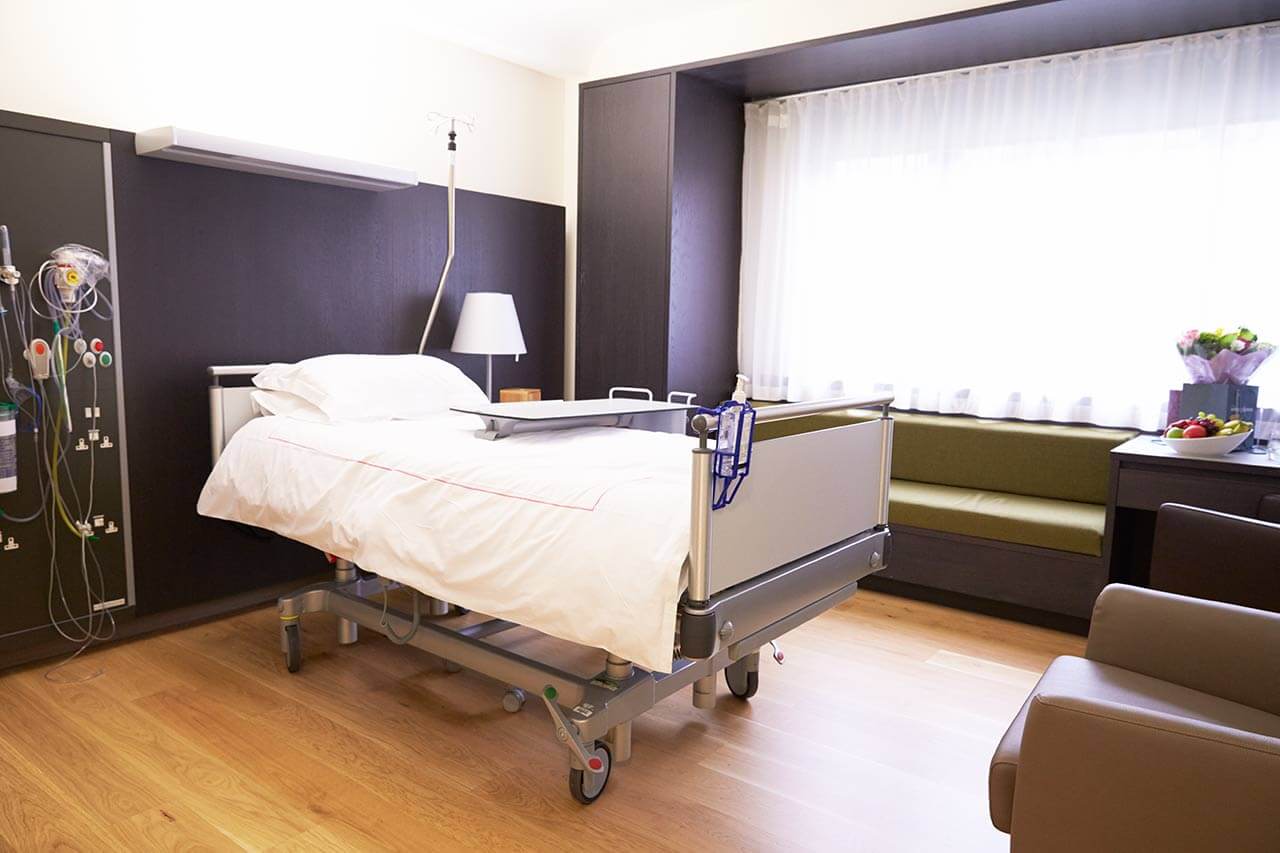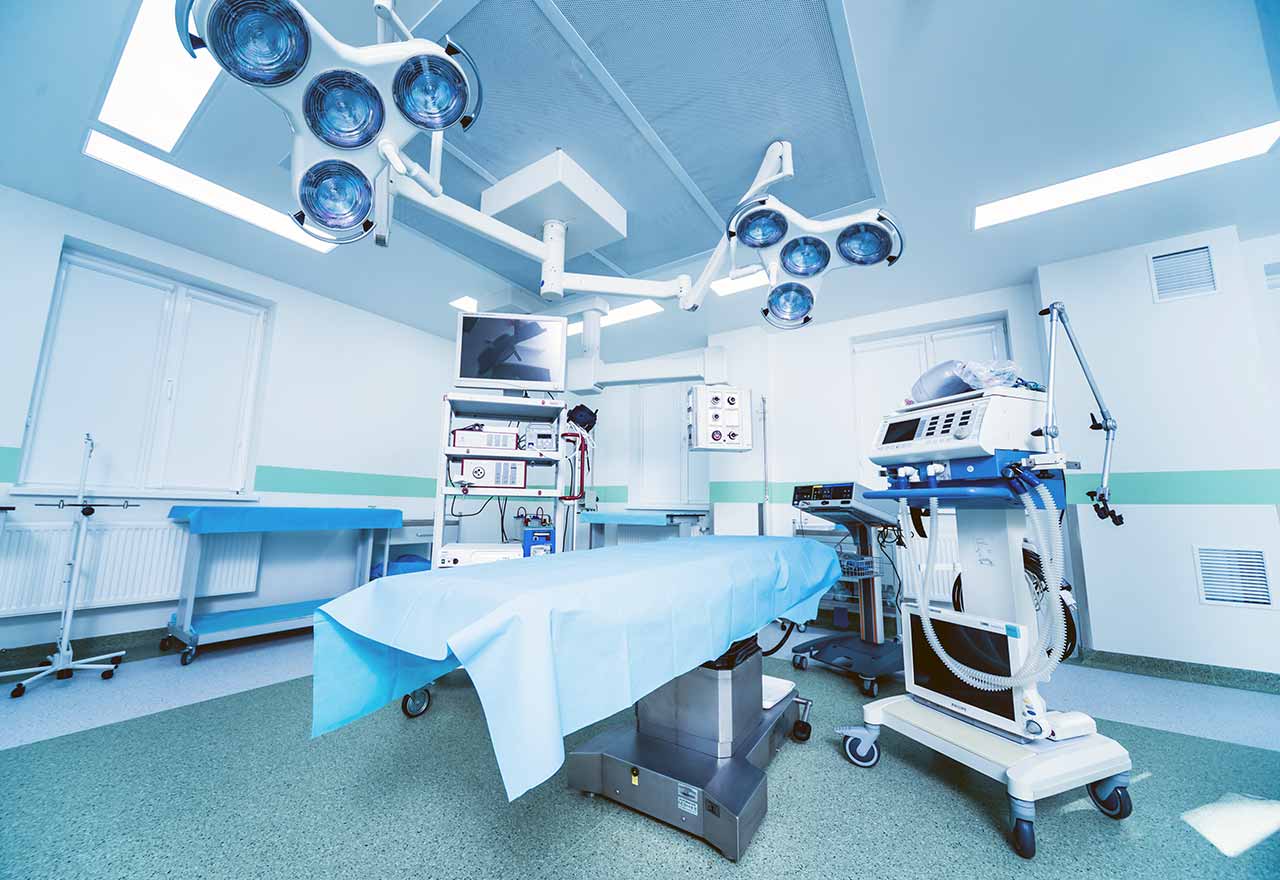
The program includes:
- Initial presentation in the clinic
- clinical history taking
- review of medical records
- physical examination
- laboratory tests:
- complete blood count
- biochemical analysis of blood
- inflammation indicators (CRP, ESR)
- TSH-basal, fT3, fT4
- indicators of blood coagulation
- individual plan of the chemotherapy
- symptomatic treatment
- the cost of essential medicines and materials
- nursing services
- control examinations
- consultations of related specialists
- recommendations for further treatment
How program is carried out
During the first visit, the doctor will conduct a clinical examination and go through the results of previous laboratory tests and instrumental examinations. After that, you will undergo an additional examination, including laboratory assessment of liver and kidney function, ultrasound scan. Based on the received results, the doctor will elaborate the chemotherapy regimen. If necessary, related medical specialists will be involved in the elaboration of a treatment regimen (tumor board).
Chemotherapy is carried out as the day hospital procedure, without mandatory admission to the hospital. After the placement of a venous catheter, you will stay in a comfortable ward. An infusion system will be connected to the catheter, through which the required drug or a drug combination will be administered. All drugs are administered by intravenous drip, slowly, so the total duration of the infusion can be up to several hours. All this time, doctors and nurses will monitor your health condition closely.
After the course of chemotherapy, you will stay under medical supervision in the ward for a few more hours. If your general condition is good, your doctor will allow you to leave the hospital. You will receive the medical report with detailed recommendations regarding further treatment. In the future, you will be able to have a distant consultation with your attending physician and schedule the next course of chemotherapy, if necessary.
Required documents
- Medical records
- MRI/CT scan (not older than 3 months)
- Biopsy results (if available)
Service
You may also book:
 BookingHealth Price from:
BookingHealth Price from:
About the department
The Department of Adult and Pediatric Oncology, Hematology at the Albertinen Hospital Hamburgoffers the full range of modern diagnostic examinations and effective treatments for patients with malignant solid tumors, as well as malignant diseases of the hematopoietic system. The department's doctors admit patients of various age categories, including young children. The department's medical team maintains fruitful cooperation with the University Cancer Center Hamburg (UCCH), which is one of the most progressive medical facilities specializing in cancer treatment in Germany and Europe. The department offers all innovative methods of cancer treatment, thanks to which the specialists achieve excellent results even in especially complex clinical cases. The patients with advanced cancers are provided with high-quality palliative care aimed at relieving pain and improving the quality of life. All types of cancer are treated in interdisciplinary cooperation. The doctors provide an individual approach to each patient. Based on the specific clinical situation, the department's specialists offer the best combination of oncology treatments. The department is headed by Dr. med. Torsten Winterberg.
The key to successful cancer treatment is high-quality and accurate diagnostics, according to the results of which an interdisciplinary tumor board develops the optimal treatment regimen for the patient. The department's diagnostic options include various blood tests, including a tumor marker test, a blood smear microscopy, a coagulogram, as well as a bone marrow puncture, a biopsy, a bone marrow punctate smear test. In cooperation with the Department of Radiology, the department provides all kinds of imaging tests– ultrasound scanning, X-ray, CT and MRI scans, scintigraphy and others. Once the type of a tumor or a malignant hematological disease, its stage, location and other important data have been accurately determined, the doctors from related disciplines will cooperatively decide on the use of one or another treatment strategy. The department's patients are offered the widest range of therapeutic services, including chemotherapy, immunotherapy, hormonal therapy, antibody therapy, targeted therapy, treatment within clinical trials (by patient's agreement), etc.
The department's doctors devote enough time to counseling patients, telling them in detail about the upcoming treatment and possible complications on the way to recovery. Since cancer is a particularly complex diagnosis, the treatment includes not only drug therapy. The therapeutic process involves the experienced nutritionists who elaborate the correct diet for a patient with one or another type of cancer, as well as psycho-oncologists who help the patient and his loved ones cope with emotional distress caused by a terrible diagnosis of cancer. All these supportive measures combined with modern treatment methods allow the doctors to effectively cope with cancer and save a person's life.
The department's doctors are also competent in cancer treatment in children, which requires a special approach. When treating young patients, the department's specialists involve the parents and loved ones of the child as much as possible in the treatment process, since the treatment itself causes great fear in the child. The psychologists work with children and their parents. In especially complex clinical cases, pediatricians specializing in a particular medical field are involved. This approach provides the child with the most effective treatment, taking into account the characteristics of the growing body.
The department specializes in the diagnostics and treatment of the following malignancies:
- Gastrointestinal oncological diseases
- Stomach cancer
- Bowel cancer
- Esophageal cancer
- Rectal cancer
- Biliary tract cancer
- Liver cancer, including liver metastases
- Pancreatic cancer
- Anal cancer
- Peritoneal cancer
- Endocrine oncological diseases
- Thyroid cancer
- Oncological diseases of the female reproductive system
- Breast cancer
- Uterine cancer
- Cervical cancer
- Ovarian cancer
- Vaginal cancer
- Oncological diseases of the male reproductive system
- Prostate cancer
- Testicular cancer
- Oncological diseases of the urinary system
- Bladder cancer
- Kidney cancer
- Ureteral cancer
- Renal pelvis cancer
- Oncological diseases of the hematopoietic system
- Acute and chronic leukemias
- Lymphomas
- Malignant anemia
- Bone and soft tissue tumors
- Oncological diseases of the respiratory system
- Lung cancer, including lung metastases
- Pleural cancer
- Head and neck tumors, including brain cancer and brain metastases
- Cancer of unknown primary
- Other types of cancer
The department's diagnostic and therapeutic service range includes:
- Diagnostics
- Laboratory tests
- Blood tests, including a tumor marker test, a blood smear microscopy, a coagulogram
- Bone marrow puncture
- Bone marrow punctate smear test
- Biopsy
- Imaging tests
- Ultrasound scanning
- X-ray
- CT scan
- MRI
- Scintigraphy
- Laboratory tests
- Treatment
- Chemotherapy
- Hormone therapy
- Immunotherapy
- Antibody therapy
- Targeted therapy
- Blood transfusion
- Pain therapy
- Puncture for ascites, pleural effusion, liquor hypertension
- Palliative care
- Treatment within clinical trials
- Other diagnostic and therapeutic options
Curriculum vitae
University Education and Professional Career
- Since 01.2020 Head of the Department of Adult and Pediatric Oncology, Hematology at the Academic Hospital Albertinen Hamburg.
- Since 01.2015 Head Physician of the Section of Oncology at the Academic Hospital Albertinen Hamburg.
- 10.2014 - 12.2019 Physician in the private practice specializing in oncology and hematology.
- 2013 Additional qualification in Palliative Care.
- 2012 Doctoral thesis defense on multiple myeloma.
- 2011 - 2014 Senior Physician, Department of Hematology and Oncology, Suedstadt Hospital in Rostock.
- 2010 Specialization in Oncology and Hematology.
- 2009 - 2011 Assistant Physician, Department of Oncology and Hematology at the Essen Süd Hospital.
- 2009 Board certification in Internal Medicine.
- 2003 - 2009 Assistant Physician, Department of Internal Medicine at the Essen Süd Hospital.
- 2002 - 2003 Internship.
- 1996 - 2003 Study of Human Medicine at the University of Essen.
Memberships in Professional Societies
- German Society for Hematology and Medical Oncology (DGHO).
Photo of the doctor: (c) Albertinen Krankenhaus
About hospital
The Albertinen Hospital Hamburgwas founded in 1907 and nowadays it is one of the largest and the most advanced medical centers in Germany. The medical facility has the status of the Academic Hospital of the University of Hamburg, thanks to which it offers the most advanced diagnostic and treatment methods, which allow the doctors to effectively cure even the most complex pathologies from various medical disciplines. The hospital is famous for the highest level of medical and technical equipment, as well as for the exceptional competence of doctors. The hospital has 1,060 beds for inpatient treatment.
The medical complex includes specialized Departments of Oncology, General Surgery, Urology, Gynecology, Cardiac Surgery, Orthopedics and others. The doctors of the hospital demonstrate high treatment success rates. The hospital has modern operating rooms for sparing minimally invasive interventions using the da Vinci Surgical System and state-of-the-art hybrid operating rooms.
The goal of each hospital employee is to combine highly effective and innovative medicine with compassionate care and an individual approach to each patient. Every year, more than 110,000 patients prefer medical care in the Albertinen Hospital Hamburg, which is an undeniable confirmation of the impeccable quality of the services provided.
Photo: (c) depositphotos
Accommodation in hospital
Patients rooms
The patients of the Albertinen Hospital Hamburg live in cozy and comfortable rooms made in light colors and modern design. Each patient room is equipped with an ensuite bathroom with shower and toilet. A standard patient room includes an automatically adjustable bed, a bedside table, a wardrobe, a table and chairs for receiving visitors. The patient rooms also have a TV and a telephone.
Meals and Menus
The patient and the accompanying person are offered tasty and balanced three meals a day. If for some reason you do not eat all foods, you will be offered an individual menu. Please inform the medical staff about your food preferences prior to treatment.
Further details
Standard rooms include:
Accompanying person
During the inpatient program, the accompanying person can live with the patient in a patient room or a hotel of his choice. Our managers will help you choose the most suitable option.
Hotel
During an outpatient program, the patient can stay at the hotel of his choice. Our managers will help you choose the most suitable option.




